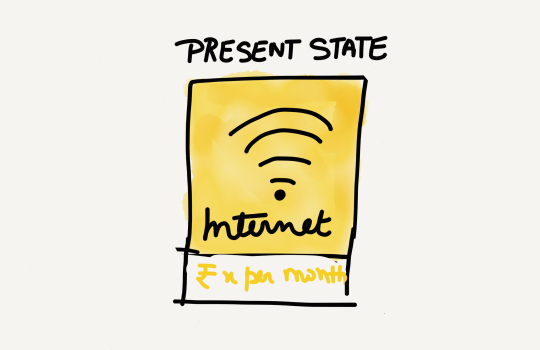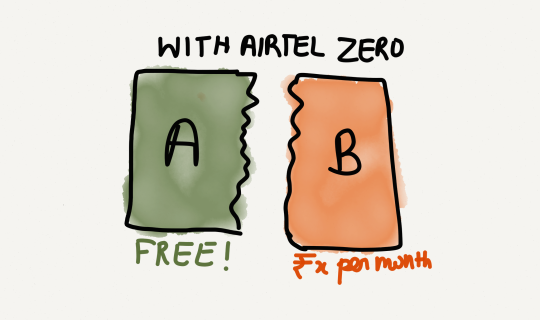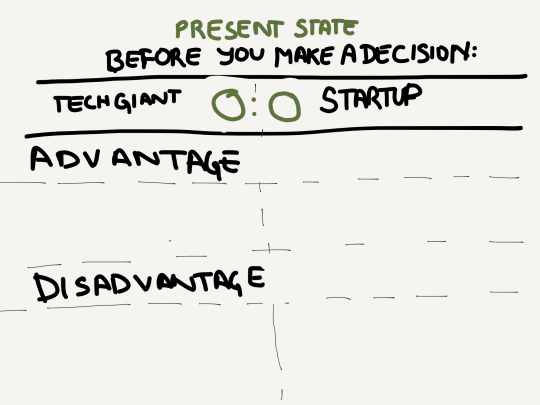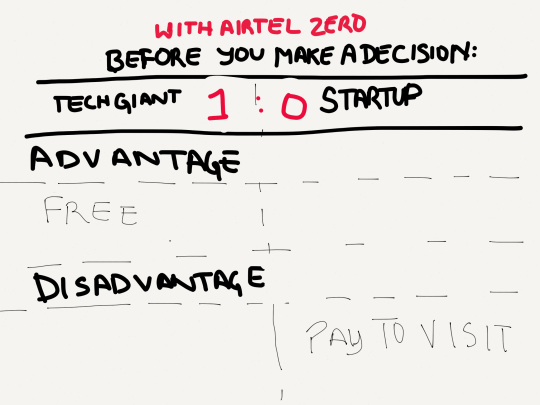Understanding Airtel Zero and Internet.org
Vidit Bhargava
“Everyone should have the access to the internet. Internet’s a necessity, those who don’t have the money to get online, should get it for free!”, Ah! Noble ideas. Alas, the current execution is so flawed that it creates segments inside the Internet.
Currently to get on to ‘the’ internet, You have to pay for it. You pay a monthly rental to your ISP (Internet Service Provider) and get an Internet connection for it. For which you get to use the internet with limited data, say 20GB every month for some Rs. x.

Now, that Rs. x, might be a hefty sum for a lot of people in the developing countries and as a result, not everyone’s able to get online. Which is where Airtel Zero comes! It provides you with ‘Free! *’ Internet. So you get to browse a select few websites, completely free of charge, but you’ll have to pay the standard monthly rental of Rs. x to browse the others. So,Yay! Consumers get some Free Lunch!

This creates two segments in our Internet. One (Let’s call it Segment A) that’s available for Free. The other (B) that you have to pay for.
But Why two segments? Why shouldn’t the entire Internet be free? Why doesn’t segment B goto Segment A? That’s because “There’s No Free Lunch”. ISPs need money to keep the internet running. In Segment B, the consumers pay the ISP that fee. In Segment A, the ‘businesses’ pay the ISP. Businesses with huge profits or big VC funding can easily pay the ISPs, making it a favourable arrangement for consumers. However, Businesses, who don’t have the money, basically any new startup, remain in the Segment A, the one where consumers have to pay.
There’s no Free lunch! Someone’s else is paying for it, so that you choose the food ‘they’ wish to provide you.
By Nature, Consumers pick Free over Paid. Who doesn’t like saving a little money? By the looks of it, Segment A is going to be hugely popular, putting the small startups, instantly on a back foot. It destroys the level playing field that’s existed between big businesses and startups on the internet.
Here’s what a default blank Advantage vs Disadvantage sheet looks like without anything like Internet[dot]org or Airtel Zero, on a neutral internet.

Score Line : Big Business: 0 New Startup : 0
But with something like Airtel Zero or Internet[dot]org, this sheet doesn’t remain blank. By default, before you can fill in anything into Advantage vs Disadvantage columns, the sheet looks like this:

Score Line : Big Business: 1 New Startup : 0
The neutrality is disturbed, the Big Business has a head start against the new startup, not because it’s a stronger product, but because it has more money than the new startup.
This isn’t even like the App Store, where the two factors are determined after you get an opportunity to compare the two. On the App Store, you pay to download the app, you don’t pay to preview it and make a decision, the decision making segment of an App Store is neutral (Which is what Net Neutrality ensures for websites). However on a platform like Airtel Zero, the decision making part isn’t neutral. Here, irrespective of whether you eventually use a product, you’ll have to pay / be granted free access to make a decision.
It’s like starting a football match with the Score Line set to 1-0. Is that a fair match? Should it happen?
Both Airtel Zero and Internet[dot]org are noble ideas. It’s good to hear people wanting to provide Internet access to everyone. HOWEVER, The means they are using at the moment are unfair to a lot of people. A service that’s only favourable to the rich (Businesses rather than consumers here.), isn’t probably the best way to go forward.